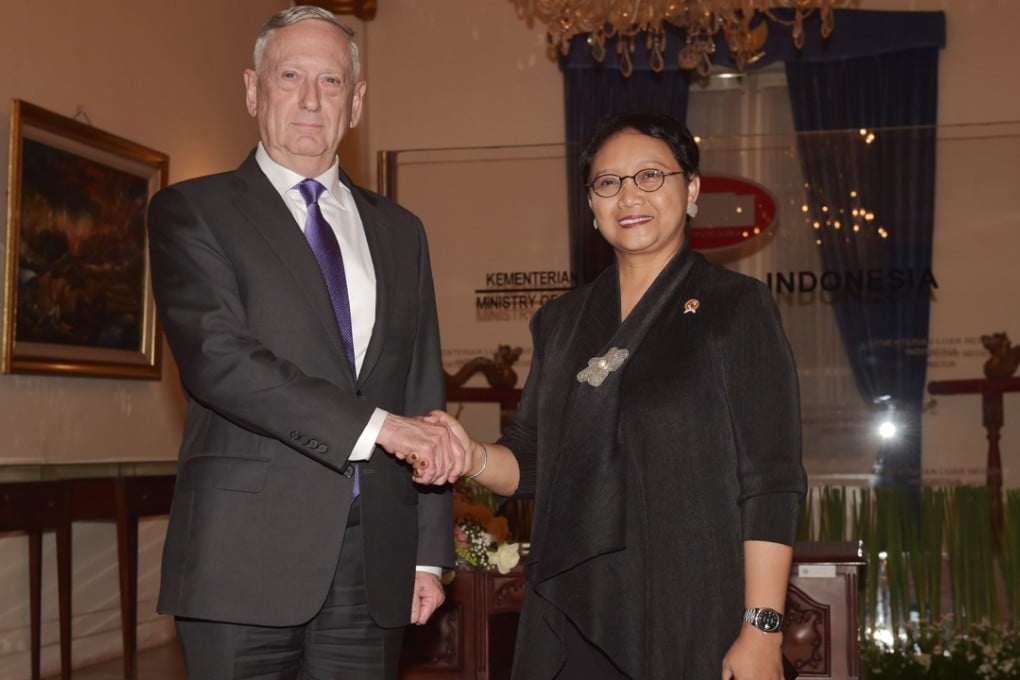US may upset Beijing after it backs Indonesian claim on South China Sea near Natuna islands
China has previously objected to Indonesia’s decision to rename a section of the South China Sea as the North Natuna Sea

US Defence Secretary Jim Mattis accepted Indonesia renaming an area previously considered part of the South China Sea during his visit to the country – potentially upsetting China.
“Certainly Indonesia, as a fulcrum, a maritime fulcrum of the Indo-Pacific area, is critical,” Mattis told a joint press conference after bilateral talks with Indonesian defence minister Ryamizard Ryacudu.
He also expressed a readiness to embrace the name newly assigned by Indonesia to waters around the Natuna Islands.
“We can help maintain maritime domain awareness in the South China Sea, the North Natuna Sea,” Mattis added. “This is something that we look forward to doing.”
In July, the Indonesian government unveiled an updated national map in which the country’s exclusive economic zone north of the Natuna Islands had been renamed the North Natuna Sea. It was previously part of the South China Sea.